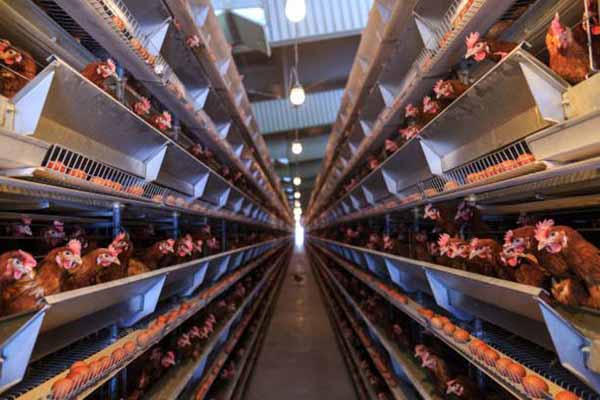The Impact of Temperature Control on Egg Production in Kenyan Chicken Farms
Time : 2025-06-24
Temperature control is a critical factor in the success of chicken farming, especially in regions like Kenya where the climate can be unpredictable. The efficient management of farm temperatures can significantly affect egg production, bird health, and overall farm profitability. This article delves into the importance of temperature control in Kenyan chicken farms, exploring the various aspects of this crucial practice.
—
Introduction
Kenya’s diverse climate presents unique challenges for poultry farmers. The ability to maintain optimal temperatures is essential for ensuring that chickens remain healthy and productive. In this article, we will examine how temperature control impacts egg production in Kenyan chicken farms, the challenges faced, and the technological solutions available.
The Role of Temperature in Egg Production
Temperature plays a pivotal role in the reproductive cycle of chickens. The following points highlight the impact of temperature on egg production:
1. Sperm Development: Higher temperatures can lead to sperm damage and reduced fertility in roosters. This can directly affect the number of eggs laid and the viability of the eggs.
2. Laying Cycle: Chickens typically lay eggs during the cooler parts of the day. In warmer climates, this cycle can be disrupted, leading to decreased egg production.
3. Embryo Development: Eggs laid in temperatures outside the optimal range can result in embryonic deformities or even embryonic death, reducing the hatchability of eggs.
Challenges in Temperature Control in Kenyan Chicken Farms
Kenyan chicken farms face several challenges in maintaining optimal temperatures:
1. Climate Variability: Kenya’s climate can vary widely, making it difficult to predict and prepare for temperature fluctuations.
2. Limited Resources: Many small-scale chicken farmers in Kenya may not have access to advanced cooling systems or adequate shade structures.
3. Energy Costs: Running cooling systems can be expensive, particularly in regions with limited access to affordable energy sources.
Technological Solutions for Temperature Control
Despite these challenges, there are several technological solutions that can help Kenyan chicken farmers manage temperatures effectively:
1. Ventilation Systems: Proper ventilation can reduce heat buildup in chicken houses. Fans and natural air flow are key components of an effective ventilation system.
2. Insulation: Insulating chicken houses can help retain cooler temperatures during the day and reduce heat loss at night.
3. Cooling Systems: Refrigeration units and evaporative coolers can be used to lower temperatures in the hen houses.
4. Automated Control Systems: Using automated temperature control systems can help farmers maintain optimal conditions 24/7, even when they are not on the farm.
Case Studies
Several Kenyan chicken farms have successfully implemented temperature control measures to enhance egg production. For example, the use of automated cooling systems has been shown to increase egg production by up to 20% in some cases.
Conclusion
Temperature control is a vital aspect of chicken farming in Kenya. By implementing effective temperature management strategies, farmers can improve egg production, bird health, and farm profitability. While challenges exist, the availability of technological solutions provides hope for the future of Kenyan chicken farming.
—
, , , , , , , , , 











